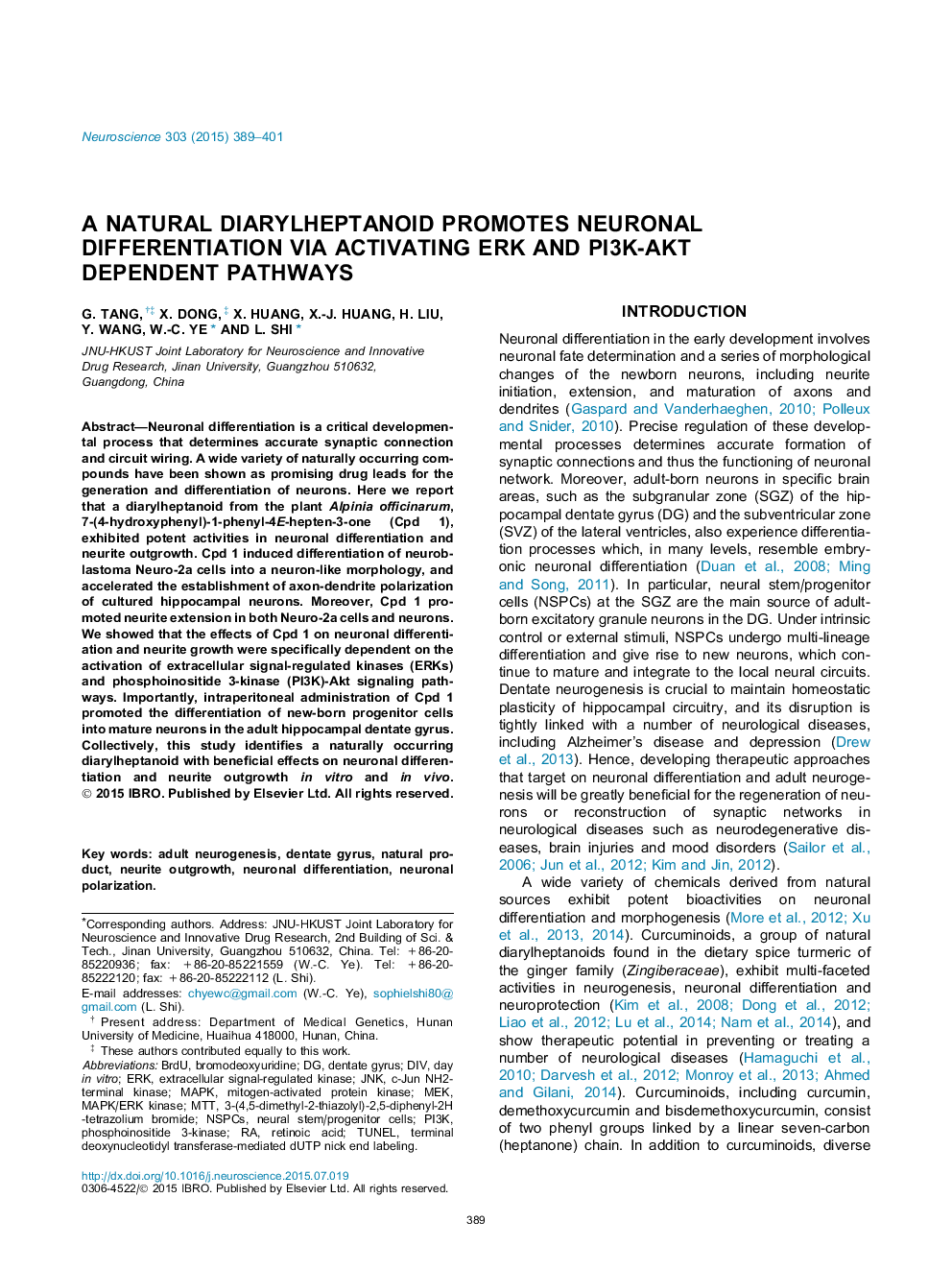| Article ID | Journal | Published Year | Pages | File Type |
|---|---|---|---|---|
| 6271861 | Neuroscience | 2015 | 13 Pages |
â¢Three natural diarylheptanoids possessed neurogenic and neuritogenic activities.â¢Cpd 1 promoted differentiation of neuroblastoma cells and hippocampal neurons.â¢Cpd 1 promoted differentiation/maturation of adult-born dentate neural progenitors.â¢Pro-differentiation activity of Cpd 1 was dependent on ERK and PI3K-Akt pathways.
Neuronal differentiation is a critical developmental process that determines accurate synaptic connection and circuit wiring. A wide variety of naturally occurring compounds have been shown as promising drug leads for the generation and differentiation of neurons. Here we report that a diarylheptanoid from the plant Alpinia officinarum, 7-(4-hydroxyphenyl)-1-phenyl-4E-hepten-3-one (Cpd 1), exhibited potent activities in neuronal differentiation and neurite outgrowth. Cpd 1 induced differentiation of neuroblastoma Neuro-2a cells into a neuron-like morphology, and accelerated the establishment of axon-dendrite polarization of cultured hippocampal neurons. Moreover, Cpd 1 promoted neurite extension in both Neuro-2a cells and neurons. We showed that the effects of Cpd 1 on neuronal differentiation and neurite growth were specifically dependent on the activation of extracellular signal-regulated kinases (ERKs) and phosphoinositide 3-kinase (PI3K)-Akt signaling pathways. Importantly, intraperitoneal administration of Cpd 1 promoted the differentiation of new-born progenitor cells into mature neurons in the adult hippocampal dentate gyrus. Collectively, this study identifies a naturally occurring diarylheptanoid with beneficial effects on neuronal differentiation and neurite outgrowth in vitro and in vivo.
